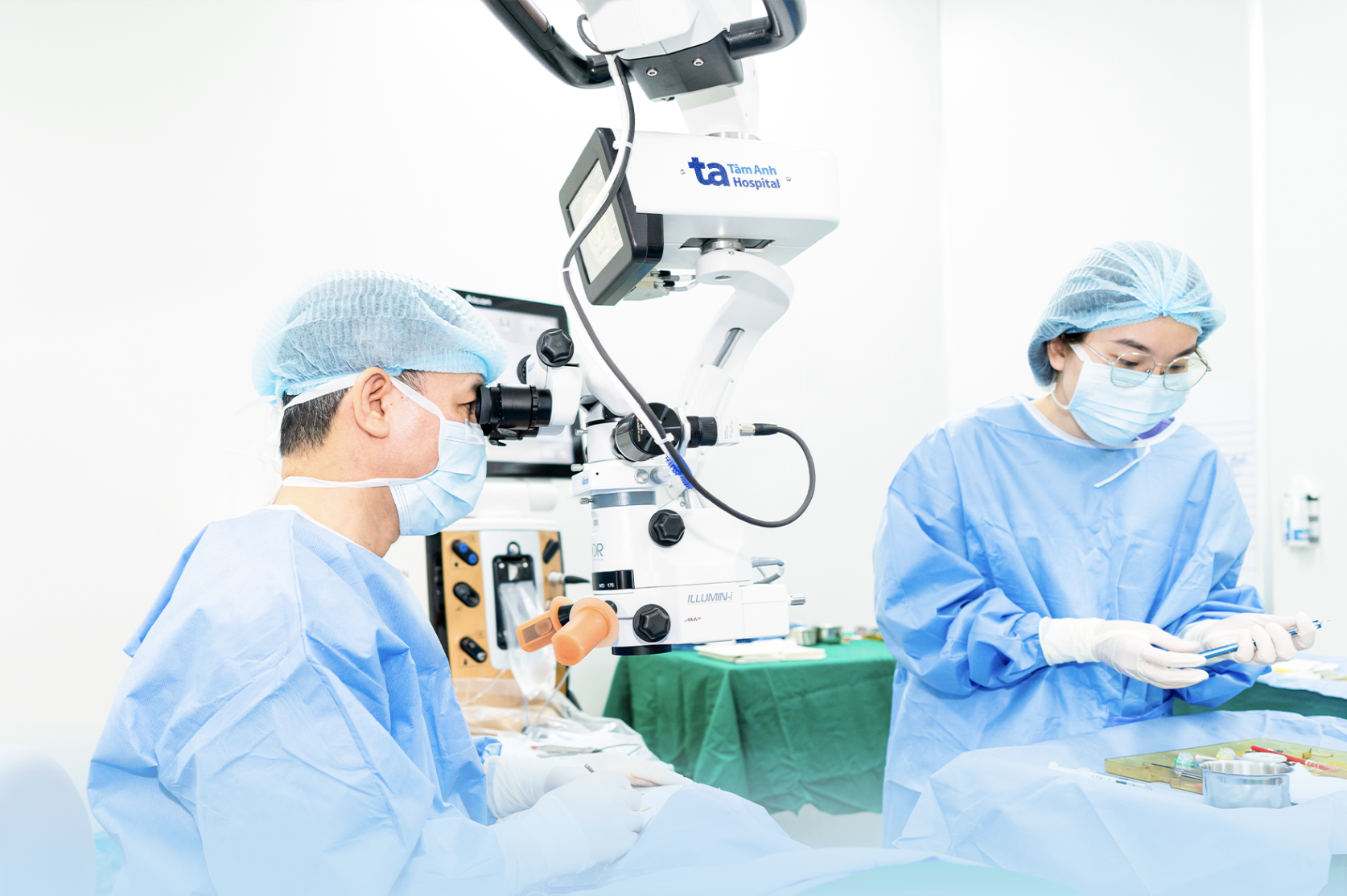Dr. Tang Ngoc Anh, Deputy Head of the Ophthalmology Department at the High-Tech Eye Center, Tam Anh General Hospital, TP HCM, explained that Mr. Quan had posterior subcapsular cataracts. This specific type of cataract occurs when the thin membrane behind the lens becomes cloudy. Its location directly in the central visual axis causes significant vision impairment even with small opacities, especially when reading or in bright light. This condition is common in older adults, those with metabolic disorders like diabetes, individuals who have used corticosteroids, or those with uveitis.
Doctors recommended phacoemulsification surgery to remove the clouded lens and replace it with an artificial one, restoring the patient's vision. Professor Nguyen Xuan Hiep, Director of the High-Tech Eye Center, used ultrasound energy to break down the clouded lens, extracting it through a tiny incision of about 2 mm. An artificial lens was then inserted into the correct position. Professor Hiep's precise maneuvering and controlled use of phaco energy minimized the risk of post-operative complications, especially given the deep location of the posterior subcapsular cataract close to the posterior capsule.
 |
Professor Hiep performing phaco surgery. Photo: *Tam Anh General Hospital* |
A day after surgery, Mr. Quan noticed a significant improvement in his vision. Initially, he was advised to rest, avoid dust and smoke, refrain from rubbing his eyes, and use prescribed eye drops for optimal recovery. Within a week, he could resume normal activities. His left eye now sees clearly with sharp images, free from blurriness or glare.
Cataracts develop gradually, and many people may overlook early symptoms like blurred vision, glare, or central vision spots, as they can be mild and minimally disruptive to daily life. However, without treatment, the lens loses transparency, becoming increasingly cloudy or yellowish, completely obstructing light from entering the eye. This can lead to severe vision loss and even permanent blindness.
Dr. Ngoc Anh recommends regular eye exams for individuals over 50 or those with underlying conditions like diabetes to detect lens or retinal abnormalities early for prompt treatment.
Nguyen Minh
*The patient's name has been changed.
| Readers can submit questions about eye diseases here for doctors to answer. |












